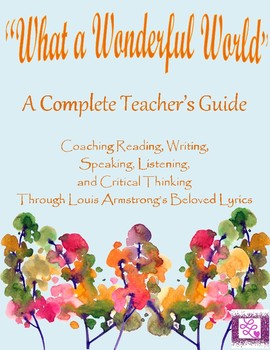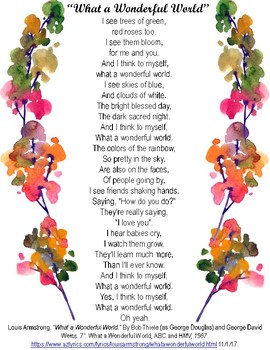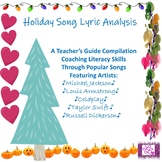"What a Wonderful World"
- PDF
Also included in
- Engage your students during the trickiest of seasons through these creative units of study! Your 4th-8th grade students will have opportunities to build reading, writing, critical thinking, speaking and listening skills through this compilation of resources.These units of study include: ♪copies of sPrice $9.90Original Price $11.00Save $1.10
Description
This Socratic seminar unit of study features the iconic Louis Armstrong song that celebrates our world. It is designed for grades 2-5, as teachers can alter rigor as needed to ensure students are challenged accordingly. Students will have the opportunity to build reading comprehension, fluency, and text dependent writing skills through these lyrics. Activities include creative expression, building background knowledge and text connections, and writing prompts that involve using text evidence to support thoughts shared. The culminating seminar discussion offers students a chance to share all the thoughts their mind has gathered through the week's activities, nurturing their speaking and listening skills. Through this unit, students will enjoy the chance to stop and look around and see all we truly have to be thankful for in this wonderful world we share!






